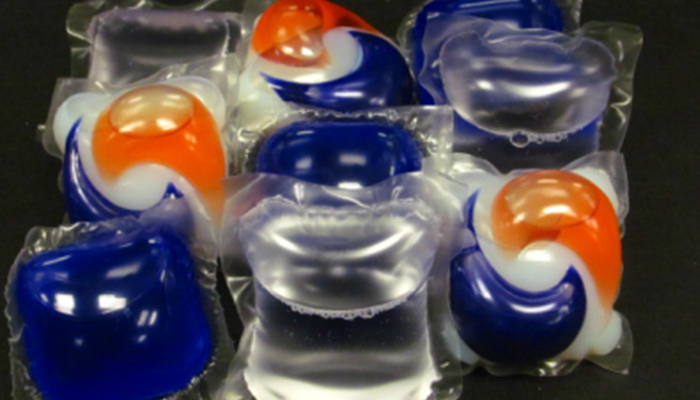Highly concentrated “single-load liquid laundry pods” can cause serious harm to young children. These laundry pods are attractive to children because they look like candy or something fun to play with.
Poison centers receive many calls each year about children getting into laundry detergent. Swallowing it often causes mild stomach upset, if there are any symptoms at all, but poison center experts say the new highly concentrated single-load liquid laundry detergent packets seem to be different.
Some children who have gotten the product in their mouths have had excessive vomiting, wheezing and gasping. Some get very sleepy. Some have had breathing problems serious enough to need a ventilator to help them breathe. There have also been reports of corneal abrasions (scratches to the eyes) when the detergent gets into a child’s eyes.
The experts at your local poison center urge parents and caregivers to:
Always keep detergent containers closed, sealed and stored up high, out of the reach of children.
Follow the instructions on the product label.
Call your local poison center at 1-800-222-1222 immediately if you suspect a child has come in contact with this detergent.
In 2017, through September 30, poison centers received reports of 8,307 exposures to highly concentrated packets of laundry detergent by children 5 and younger.
PLEASE NOTE: The term “exposure” means someone has had contact with the substance in some way; for example, ingested, inhaled, absorbed by the skin or eyes, etc. Not all exposures are poisonings or overdoses.

The article raises awareness about the serious risks associated with highly concentrated single-load liquid laundry pods and their potential harm to young children. It highlights the attractiveness of these pods to children due to their candy-like appearance, emphasizing the need for parents and caregivers to take preventive measures such as storing detergent containers out of reach and promptly contacting a local poison center if a child comes into contact with the detergent. The statistics provided regarding reported exposures underscore the importance of vigilant supervision and adherence to safety guidelines to protect children from accidental ingestion or other harmful effects.